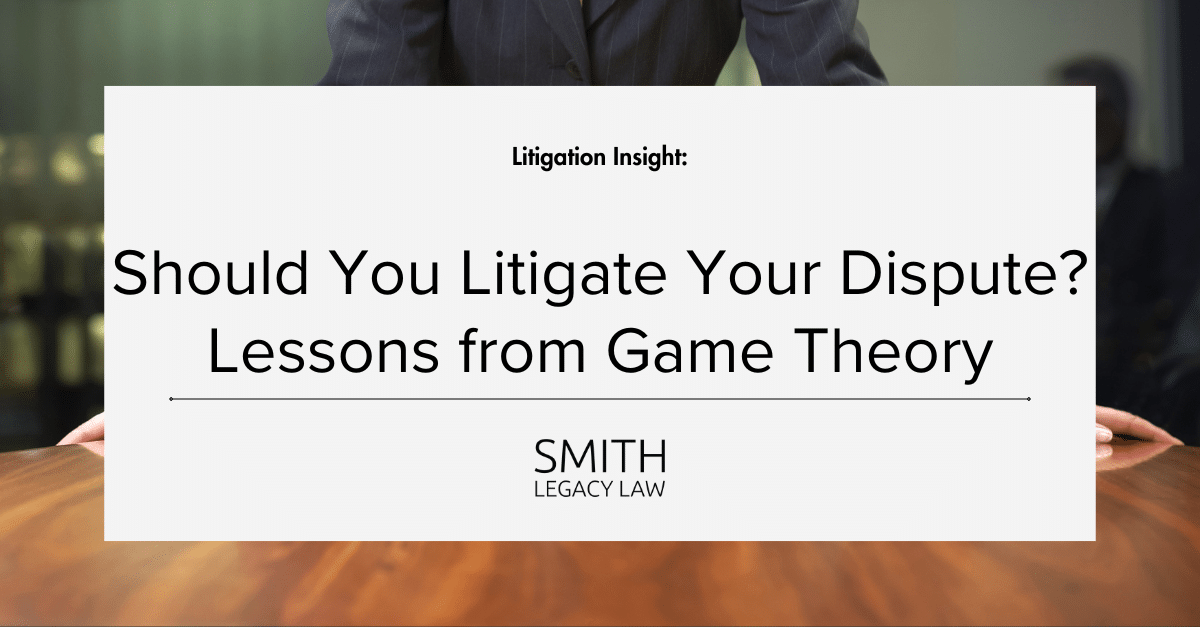Game theory studies how outcomes are affected by the actions of different actors or “players.” How does this fit into litigation? Without minimizing the important stakes for parties involved in a lawsuit, it can help to think of litigation as a game. Every party is a player and each party’s actions affect the outcome. Different strategies can be developed depending on how each player is likely to react to the other party’s moves until you find the best approach to resolution of the dispute.
How Can Game Theory Help with Litigation Strategy?
If you look at your litigation as a game, you can step back and “view the board” to determine the situations of the other players strategically. This is particularly important when the players have different information or an imbalance of information. By controlling what is revealed and when, one player can encourage the other player to cooperate or act in a way that benefits the interests of the first player.
Key questions to consider in developing a litigation strategy using game theory include the following:
- Is there an information imbalance? How does this affect each player? How does this impact the actions taken or help to predict how a player will act?
- Do you know how another player is going to act? Does that player usually act aggressively or will they wait for another player to make the first move?
- Are the players’ preferences completely misaligned? Are there ways to align them?
- What resources does the player have to play the game? A resource imbalance can have an equally strong effect as an information imbalance.
Once you determine your strategy, it can be important to remain flexible as the game progresses. Just as a move by you might alter the response of your opponent, you must be ready to respond to the unexpected. This ability to adapt your strategy can be crucial to a successful outcome, and it is a skill that litigators develop and hone through experience. Many attorneys choose not to take on litigation matters and focus on other areas of practice. When you are threatened with a lawsuit it is helpful to hire an experienced litigator who can help you prepare for the unexpected and act quickly and effectively while playing the litigation “game.”
What Is the Best Resolution of the Game?
Litigation is often thought of as a win-lose battle. However, when viewing it as a game, it is important to consider whether there has to be a winner and a loser. If the answer is yes, your strategy must be focused on maximizing your chance of winning.
Alternatively, if the answer is no, compromise becomes an option. Settlement is the most common resolution of litigation because it removes the uncertainty of having a judge decide and usually minimizes the downsides for all players. If this is your goal, your strategy should focus on how to formulate a settlement that will be acceptable to all players before the players have been forced to spend too much money litigating.
By applying game theory, your decisions become more strategic and practical, rather than emotional. The aim is to focus on actions that are most likely to lead to a positive outcome.
If you have a legal problem, it is important to work with an attorney who can help you understand and analyze your options so you make well-informed decisions. Our attorneys have extensive experience advocating for clients in negotiations and in court in a wide array of disputes. Contact us for a consultation today to learn how we can assist you with your matter.
